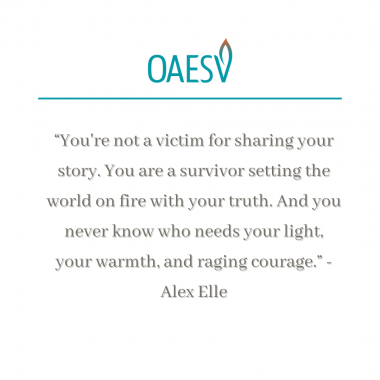5 Supportive Responses to a Sexual Violence Disclosure
Sexual violence is the fault of the perpetrator. When we blame the victim, perpetrators aren’t held accountable for their action, and ultimately, perpetrators are more likely to continue their destructive behaviors and acts of sexual violence. Sexual violence is never the victims’ fault, but unfortunately, “rape culture” makes it acceptable for perpetrators to avoid accountability for their behaviors. 
Examples of victim blaming:
- “Well, when you wear a short skirt like she does, she’s asking for it.”
- “You walked through a dangerous neighborhood, what did you expect?”
- “She had too many drinks; what did she think would happen?”
- “He liked him and was flirting with him, what did he expect?”
- “I know him, he was raised in a good family and would NEVER do something like that. She’s just trying to humiliate him because he broke up with her.”
- “They just realized it was a mistake by having sex and are ‘crying rape’.”
Victim blaming occurs at a higher rate in sexual assault in comparison to other crimes. Victim blaming is not a beneficial reaction and often leaves the victim feeling guilty, distraught, and hopeless. Individuals whom experience sexual violence trauma feel shame, fear, anger, and isolation. The aftermath of sexual violence can have lasting psychological affects diminishing judgement, reasoning, trust, intimacy, and difficulty maintaining healthy relationships. Many victims fear reporting these crimes such as gross sexual imposition, groping, sexual battery, sexual harassment, sexual coercion, and rape.
How can we better respond to individuals who have experienced sexual violence?
- “I believe you.”
- “It’s not your fault.”
- “You are not alone, and I will help you get through this.”
- “How can I help?”
- “I’m sorry this happened.”
We have to empathize – the ability to understand how a person may feel if we were in their shoes. It is important to support sexual violence victims regardless of if or when they decide to tell their story, and regardless of the form of accountability that they seek. For many survivors it can be extremely challenging to report the crime. To overcome barriers and challenges we have to show support. It is best to avoid judgement, check in periodically, and assist with providing available resources.
